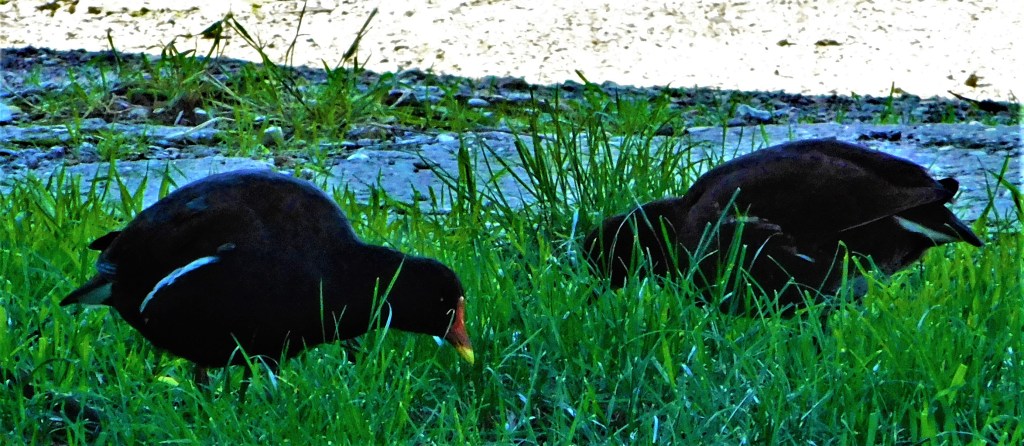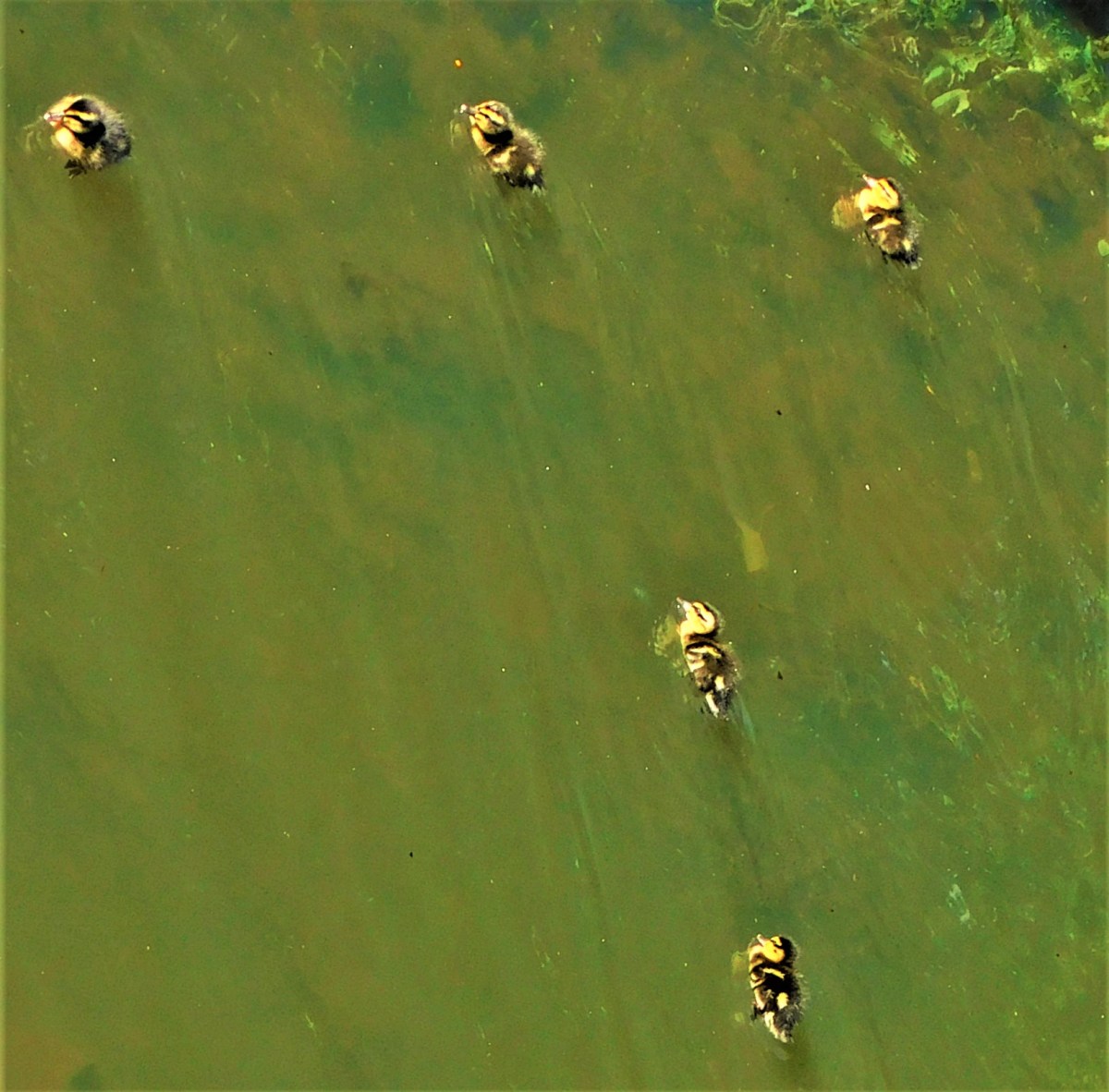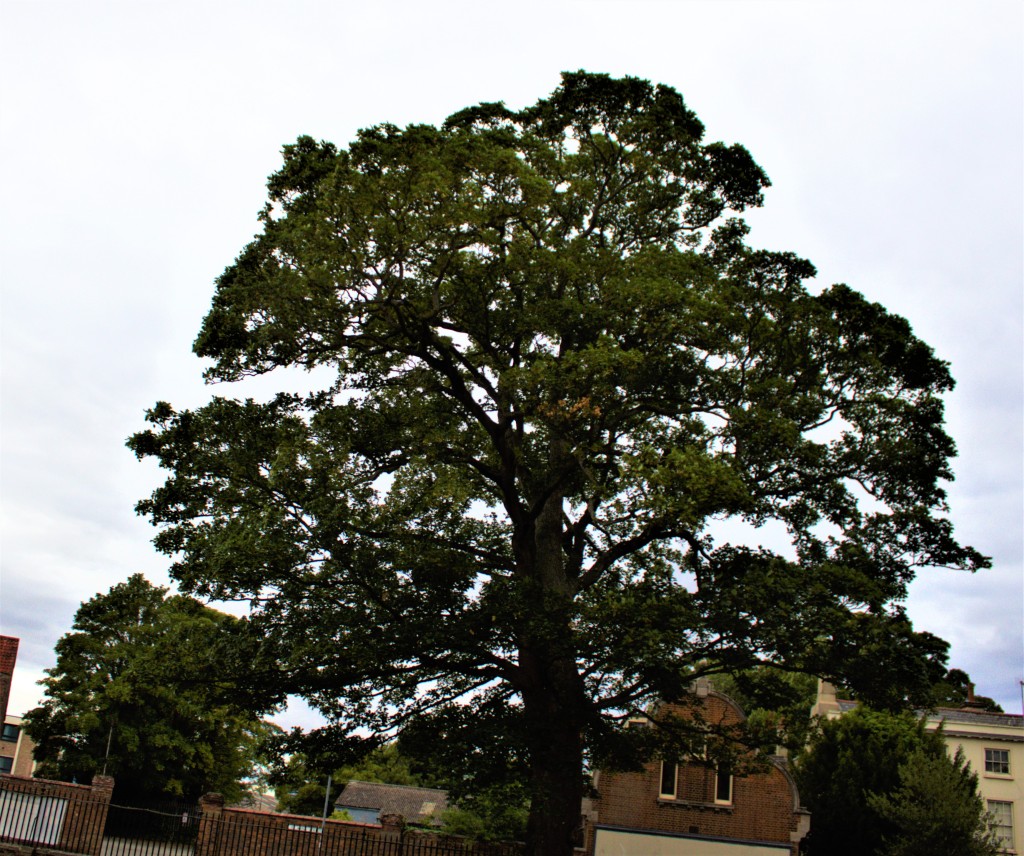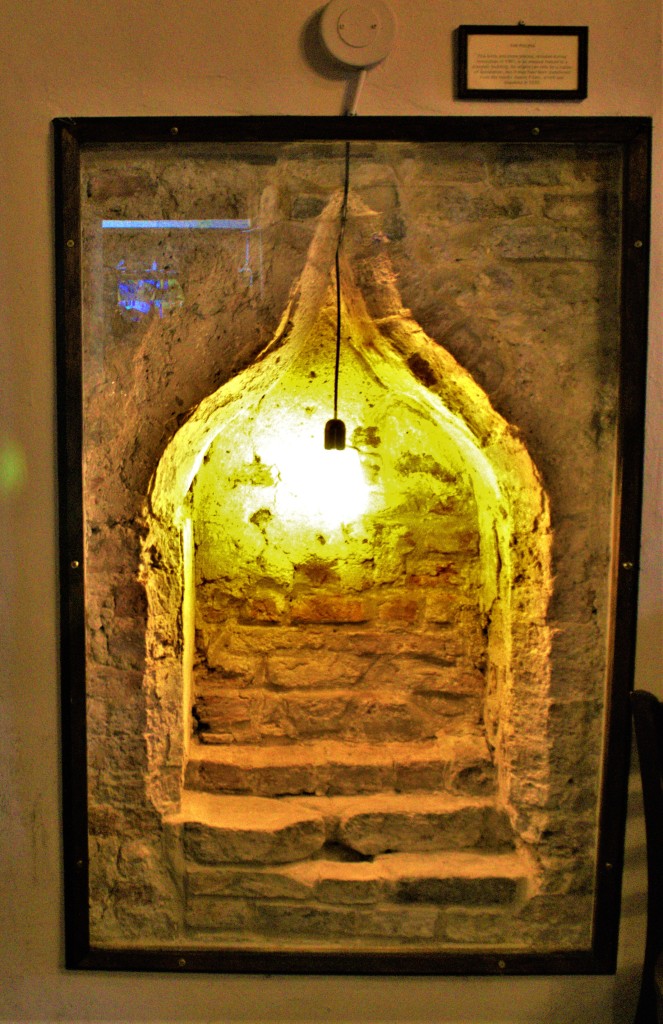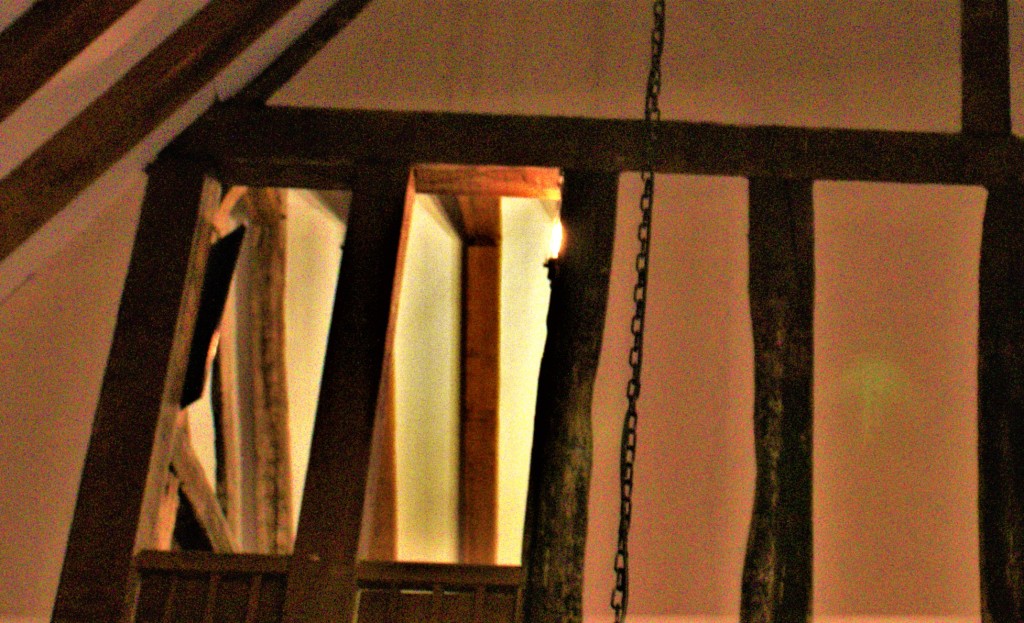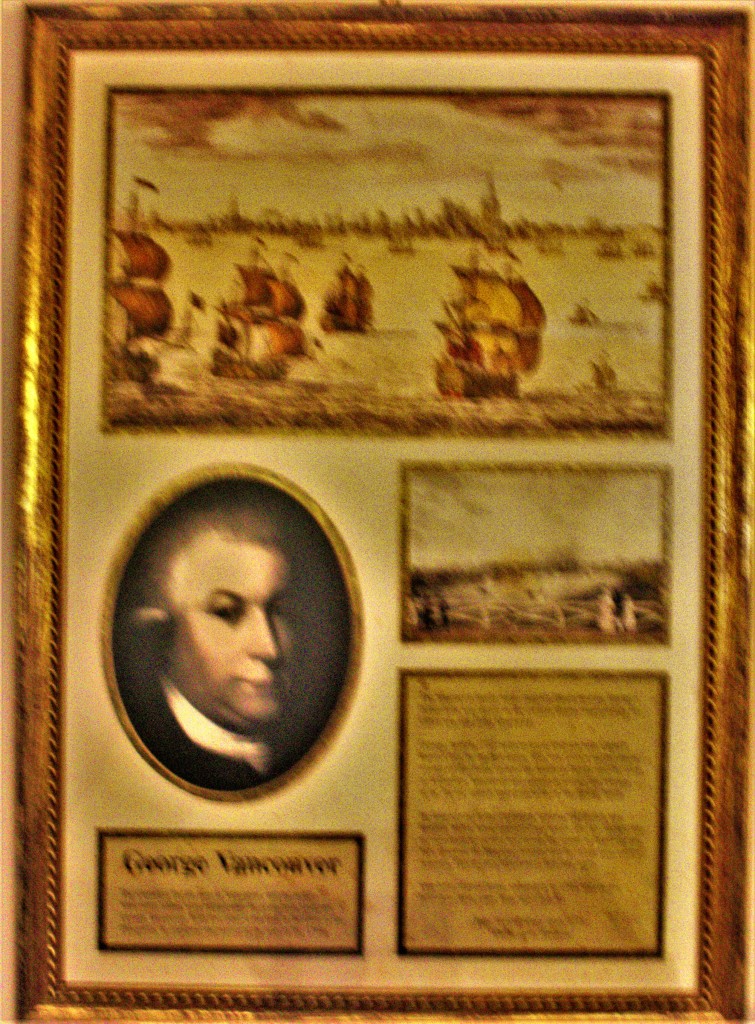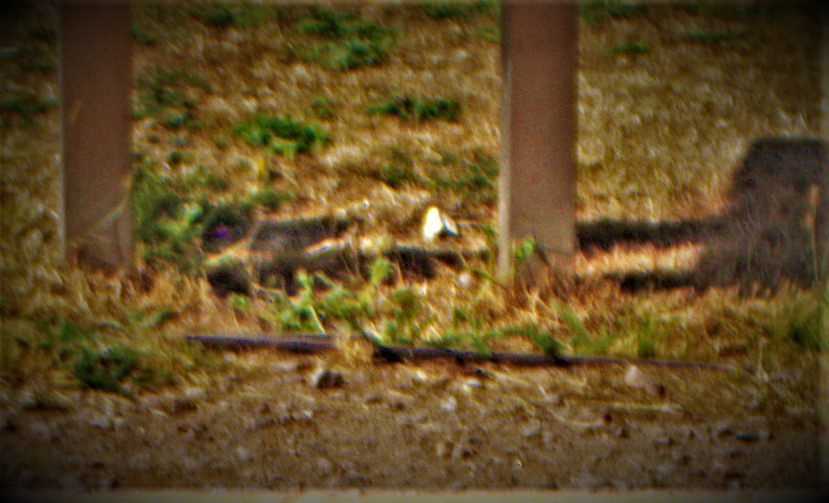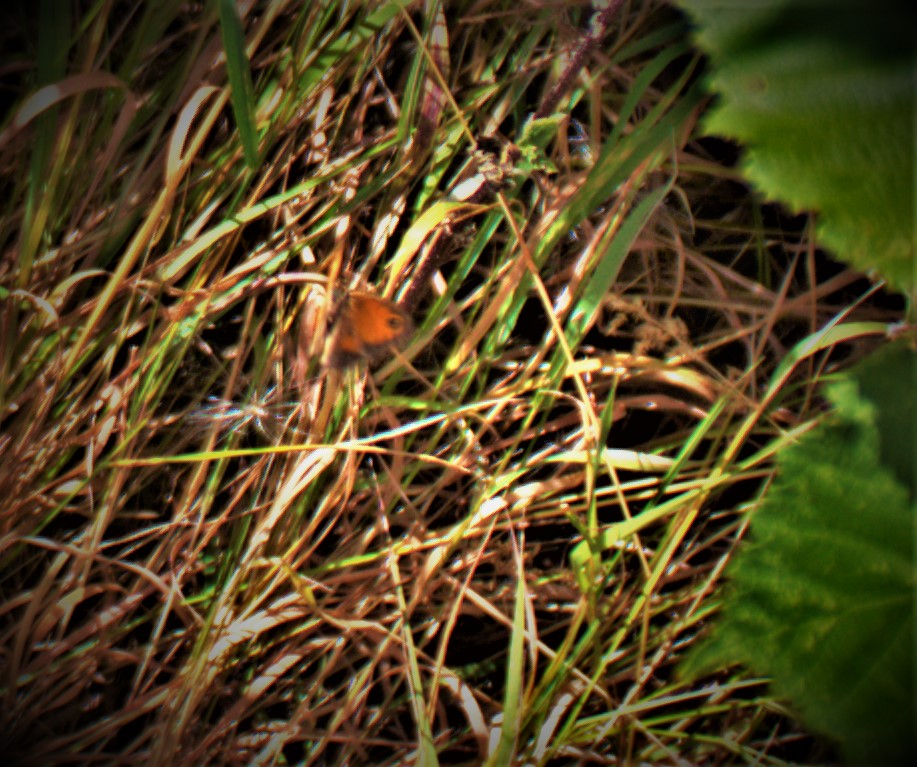Welcome to the latest instalment in my extended analysis of how the all time XIs I selected for each letter of the alphabet fare against one another. Today is the Fs last day in the spotlight.
THE Fs V THE Vs

The Fs win the first three batting match ups, the Vs win the no 4 and 5 slots, but Faulkner’s bowling mitigates his narrow loss to Vengsarkar on the batting front. Verreynne is significantly ahead of Foakes on FC batting average, although Foakes out batted him in the only test series in which both have featured, and Foakes is also the better keeper. Fender, whose captaincy I rate ahead of Vaughan’s, outbats Vogler, though the Saffa was much the better bowler. Foster and Vaas is a good battle – Foster was the classier bat, Vaas probably the better bowler, especially given that in this XI he would be third seamer in a strong attack rather than opening bowler in a moderate one. Verity is far ahead of Flowers as a bowler, though the Notts man was a better batter. I would rate Freeman and Ferris a better new ball pairing than Voce and Van der Bijl. Ferris can definitely be ranked ahead of Voce as a left arm seamer, though like Voce he was metaphorically overshadowed by a team mate who was an even more fearsome bowler than himself. Freeman and Van der Bijl both missed out on test cricket, Freeman because he retired just before test cricket started, Van der Bijl because SA were personae non grata during his playing days. On my usual method of allowing for bowlers being more expensive now than they were in the 19th century Freeman’s bowling average of 9.71 becomes 14.56, while Van der Bijl had an FC bowling average of 16.54, two runs a wicket more expensive than Freeman’s adjusted figure. The Fs have better batting, a better captain, a better keeper and better pace bowlers while the Vs have better spinners. I will allow the Vs spinners their day and score this one Fs 4, Vs 1.
THE Fs V THE Ws
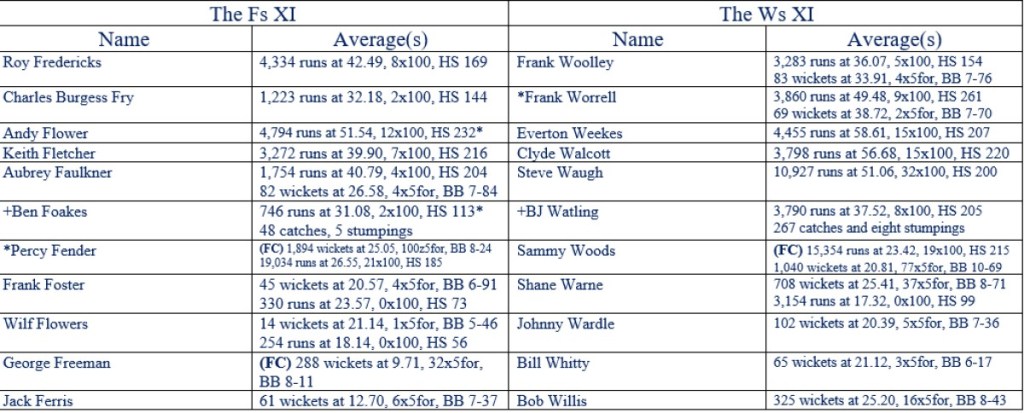
The Fs have the better left handed opener, while the Ws have the better right handed opener, and both Ws openers offer bowling options. The Ws boss the 3-5 slots batting wise, although Faulkner outranks Worrell and possibly Woolley as a bowler. Watling outranks Foakes as a batter, but Foakes is clear as a keeper. Woods and Foster are about equal as pace bowling all rounders, Warne is way ahead of Fender with the ball, but Fender was the finer batter. Wardle was a much better bowler than Flowers. Ferris outranks Whitty as a left arm pacer, while I would rate Freeman ahead of Willis. Worrell was at least the equal of Fender as a captain. I think the Ws are far enough ahead in batting and spin bowling to make up for their deficit in pace bowling and award them a narrow win – Fs 2, Ws 3.
THE Fs V THE Xs
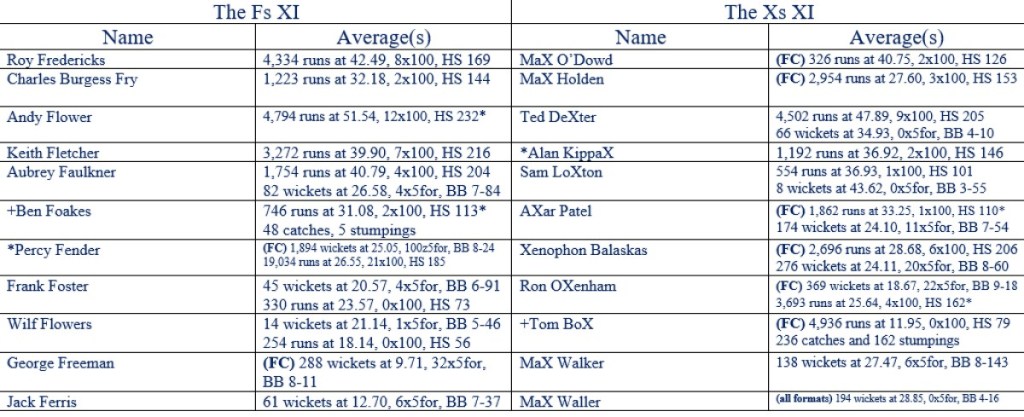
The Fs win the batting and pace bowling hands down, but the Xs are closer in spin bowling, and Box may even have been a better keeper than Foakes. Fender was definitely the finer skipper. I cannot see the Xs causing the Fs any problems and can only score this as Fs 5, Xs 0.
THE Fs V THE Ys
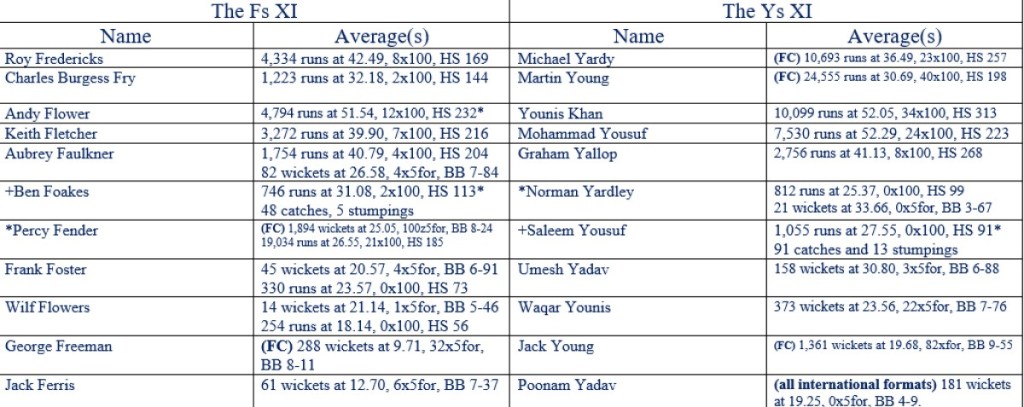
Younis Khan and Mohammad Yousuf win their batting match ups for the Ys, and Yallop narrowly wins the batting element of his match up with Faulkner, although the latter offers a bowling option. Foakes is comfortably ahead of Saleem Yousuf in both departments, Yardley is massively outpointed by Frank Foster, and similarly the Fs have the better new ball pairing. Poonam Yadav rates highest of the three leg spinners involved in this match, and Jack Young was a finer bowler than Wilf Flowers, so the Ys must be conceded an advantage in spin bowling. I score this one Fs 4, Ys 1.
THE Xs V THE Zs
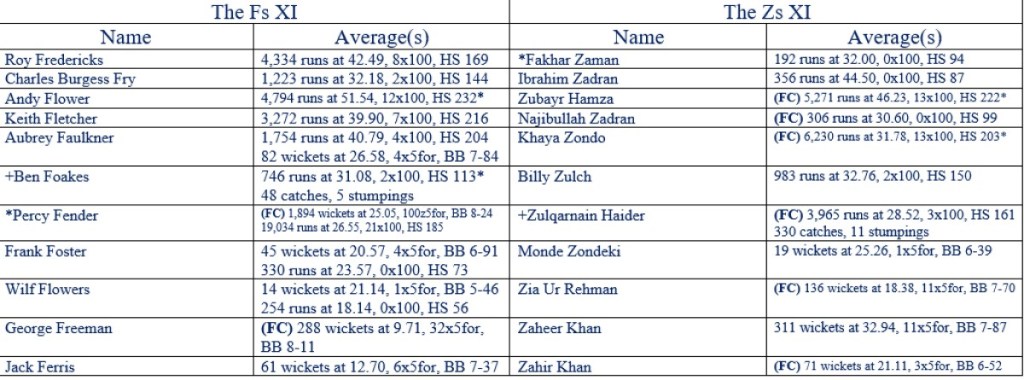
The Fs win the first five batting slots, and have a genuine bowling option in there in the form of Faulkner. Foakes outranks Zulqarnain Haider in both departments, Zulch was a better batter than Fender but the latter offers a bowling option and also outranks Zaman as a captain. Zondeki and Zaheer Khan are massively outpointed as a new ball combo by Freeman and Ferris, while the Fs have a third seamer of high class in Frank Foster whereas the Zs have no back up seam options. The Zs two spinners are unproven, whereas the Faulkner/ Fender/ Flowers trio were all quality practitioners. Fs 5, Zs 0.
THE Fs FINAL RESULT
The Fs scored 20 of a possible 25 points today, giving them a final score of 90 out of 125, 72% and currently top of the rankings among those teams who have been fully analysed.
PHOTOGRAPHS
My usual sign off…












































